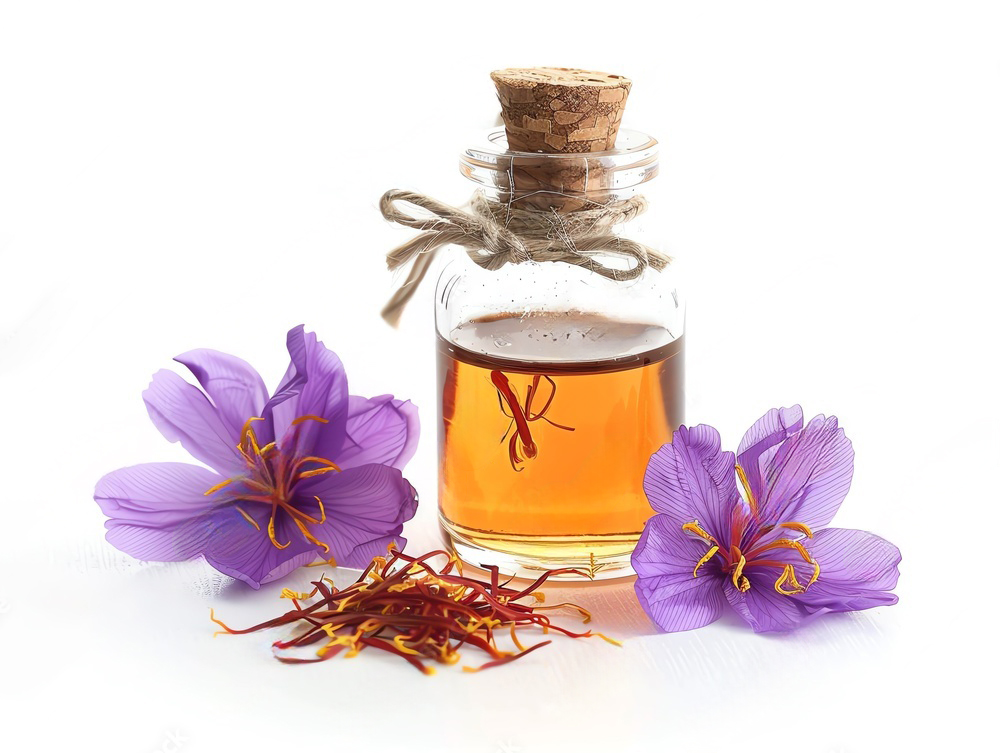
The properties and benefits of saffron
Saffron, in addition to being a precious spice loved for its flavor and the color it imparts to dishes, is also a treasure for health. For centuries, it has been used not only in cooking but also in traditional medicine, thanks to its beneficial properties that are now confirmed by numerous scientific studies.
A concentrate of active ingredients
Saffron stigmas are rich in bioactive compounds that make it a natural ally for well-being. Among the main ones, we find:
- Crocin and crocetin, responsible for the characteristic yellow-gold color, which have powerful antioxidant and neuroprotective properties.
- Safranal, the main aromatic compound, known for its calming and relaxing effects.
- Picrocrocin, which gives saffron its typical bitter taste, with positive effects on the digestive system.
These components, along with vitamins (such as vitamin C and some B vitamins), minerals, and essential oils, give saffron a wide range of health benefits.

Health Benefits
- Effects on the Nervous System and Mood
Saffron is known as a “natural antidepressant.” Several studies have shown that regular consumption of this spice can:
Improve mood and reduce symptoms of mild or moderate depression, thanks to its ability to stimulate the production of serotonin, the “happiness neurotransmitter.”
Help combat anxiety and stress, due to its relaxing and calming properties.
Promote relaxation and improve sleep quality, making it a natural remedy for those suffering from insomnia. - Antioxidant and Anti-inflammatory Action
Saffron is a powerful natural antioxidant. Its compounds protect cells from the action of free radicals, which are responsible for premature aging and numerous chronic diseases. Additionally, it has anti-inflammatory properties, useful for reducing joint pain, chronic inflammation, and promoting recovery in case of minor injuries. - Benefits for Memory and Cognitive Function
Crocetin, one of saffron’s main components, has neuroprotective effects. Recent studies suggest that saffron may help:
Improve memory and cognitive abilities, making it beneficial for students and older adults.
Reduce the risk of neurodegenerative diseases like Alzheimer’s, thanks to its ability to protect neurons from oxidative stress.
- Support for the Heart and Circulation
Saffron contributes to cardiovascular health in several ways:
It helps regulate blood pressure, thanks to its relaxing effect on blood vessels.
It improves blood circulation and reduces LDL cholesterol levels (the “bad” cholesterol), thus preventing the risk of atherosclerosis.
It has been shown to play a role in preventing heart attacks and strokes by reducing inflammation in the vascular system. - Support for the Digestive System
Saffron is a friend of the digestive tract, as it:
Stimulates the production of gastric juices, improving digestion.
Helps combat bloating, cramps, and acid reflux.
May promote the proper functioning of the liver by stimulating its detoxifying action. - Aphrodisiac Properties
In the traditional medicine of many cultures, saffron is considered a natural aphrodisiac. Recent studies have confirmed that it can improve libido and sexual performance in both men and women, likely due to its ability to improve circulation and act on the nervous system. - Support for Vision
A lesser-known aspect of saffron is its potential in protecting vision. Scientific studies have shown that it can help:
Improve visual sensitivity, especially in people with age-related macular degeneration.
Protect retinal cells from oxidative damage. - Potential Anti-Cancer Properties
The antioxidant and anti-inflammatory properties of saffron are being studied for their role in preventing certain forms of cancer. Crocin, in particular, has been shown to have a protective effect on healthy cells, counteracting the proliferation of cancerous ones. - How to Consume Saffron to Benefit from Its Properties
To gain the benefits of saffron, it’s enough to consume a small amount regularly. Usually, just a few threads (about 30 mg per day) are sufficient. Saffron can be used: - In cooking, added to risottos, soups, or teas.
- In infusion, dissolving a few threads in hot water or milk, to drink as a relaxing and beneficial beverage.
- As a supplement, in capsules or tablets, often used to support memory, mood, or vision.
It is important not to exceed the recommended doses: too much saffron can have undesirable effects. It is a very potent spice and should be used in moderation.
Conclusion
Saffron is much more than a precious spice; it is a true gift from nature for our health. Its antioxidant, anti-inflammatory, and relaxing properties make it a valuable ally for both the body and the mind. With regular and moderate use, it is possible to harness all of its benefits, turning it into a key element of a healthy and mindful lifestyle. Whether you use it to improve your mood, protect your heart, or simply enrich your dishes, saffron will always be a special ingredient in your life!

